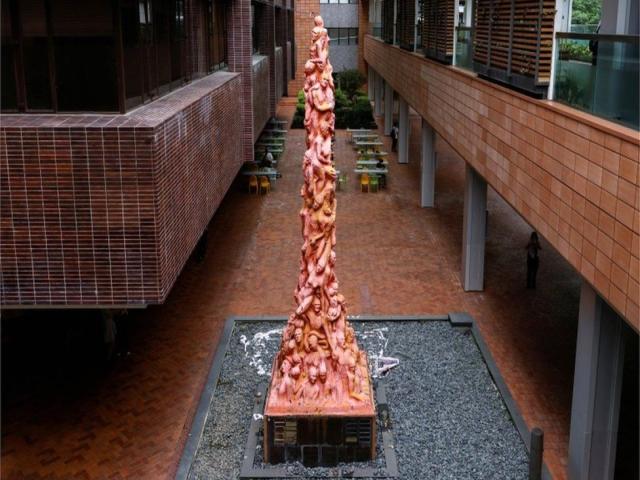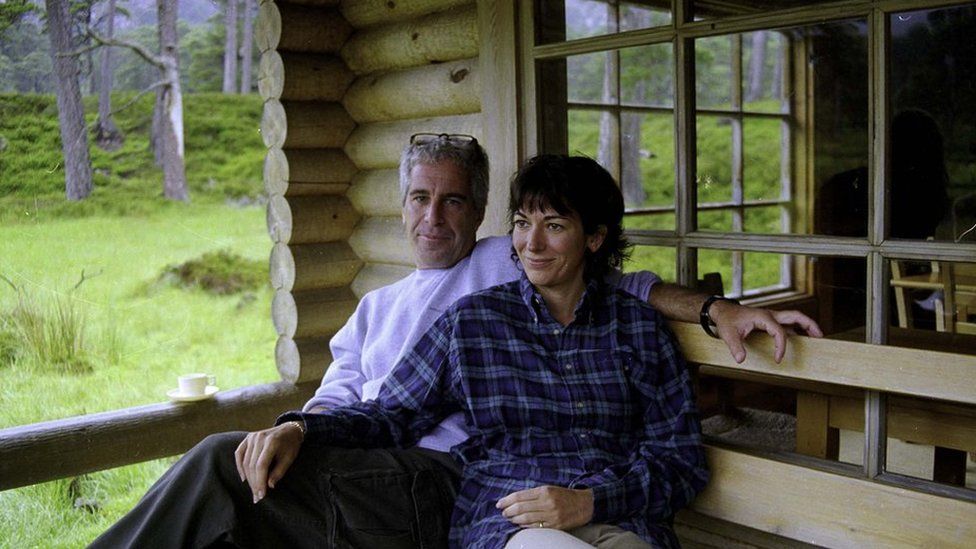Pillar of Shame: Hong Kongs Tiananmen Square

The statue showed piled-up corpses to commemorate the hundreds - possibly thousands - of pro-democracy protesters killed by Chinese authorities in 1989.
It was one of the few remaining public memorials in Hong Kong commemorating the incident.
Its removal comes as Beijing has increasingly been cracking down on political dissent in Hong Kong.
Ver Spider-Man No Way Home Cuevana en Espanol
The city used to be one of few places in China that allowed public commemoration of the Tiananmen Square protests - a highly sensitive topic in the country.
In 1989, Beijing's Tiananmen Square became the focus for demonstrations calling for greater political freedoms. Thousands of people camped for weeks in the square, but in June the military moved in and troops opened fire.
What were the Tiananmen Square protests about?
The Chinese government says 200 civilians and several dozen security personnel died. Other estimates have ranged from hundreds to as many as 10,000.
The eight-metre-high "Pillar of Shame" by Danish sculptor Jens Galschiot before it was removed at the University of Hong Kong (HKU), China, 12 October 2021
IMAGE SOURCE,REUTERS
Image caption,
The "Pillar of Shame", seen here at the University of Hong Kong in October
The university had initially ordered the removal of the statue - called the Pillar of Shame - in October.
"The decision on the aged statue was based on external legal advice and risk assessment for the best interest of the university," it said in a statement on Thursday.
The Chinese authorities have previously cited safety or public health concerns as reasons for preventing events such as vigils taking place on anniversaries of the Tiananmen Square massacre.
The first sign the statue was being taken down came late on Wednesday, when university officials fenced off the area with plastic sheeting.
Construction workers worked overnight behind plastic barriers to dismantle the 8m (26ft) copper statue. Security guards blocked reporters from approaching and tried to stop them from filming.
line
Like an affront to the city's identity
By Grace Tsoi, BBC World Service, Hong Kong
For decades, Hong Kong prided itself on being the "conscience of China" - the only place in Chinese territory that had not forgotten the 1989 Tiananmen Square massacre.
Beijing had allowed the annual candlelight vigil commemorating the bloody incident, which also become part of Hong Kong's collective memory.
But under the national security law, the vigil organiser - the Hong Kong Alliance in Support of Patriotic Democratic Movements in China - was forced to disband, and many protest leaders were jailed. It is clear that Beijing will no longer tolerate any public display of defiance.
The monument had been standing on campus for more than two decades. Now, even it had to be dismantled and removed - in the dead of night.
There was the sound of cracking and drilling as the statue came down, but no one could see what was happening. To many, the abrupt removal felt like another affront to the city's identity.
line
The removed statue depicts a column of dozens of torn and twisted bodies with anguished faces, "to remind us of a shameful event which must never recur", according to its sculptor, Jens Galschiot.
The university said it would put the statue, which has been on display at the university's campus for 24 years, into storage.
Galschiot called the removal "really brutal" and that he would consider suing the authorities and demand compensation.
"This is a sculpture about dead people and [to] remember the dead people in Beijing in '89. So when you destroy that in this way then it's like going to a graveyard and destroying all the gravestones," he told the BBC's Newshour programme.
A student leader who survived the Tiananmen crackdown and is now living in the US, Wang Dan, strongly condemned the move and accused the Chinese Communist Party of trying to "cover up their crimes".
"The Hong Kong government... has used this despicable act in an attempt to erase this blood-stained chapter of history," he wrote on Twitter.
A student at the University of Hong Kong, 22-year-old Billy Kwok, told Reuters news agency the statue's removal was "really sad".
"It's really ironic... I don't think people would expect this [to] happen in the university," he said, adding that the building was supposed to be a place that supported "so-called freedom of expression or freedom of speech".
Why is its removal significant?
"[The statue] was one of the few remaining prominent, public memorials [of the] crackdown... and a reminder of Hong Kong's freer past," Dr Ian Chong, Associate Professor at the National University of Singapore, told the BBC.
"[Its removal] takes away yet another public focal point for commemorating of the massacre... [and] appears to signal that the Hong Kong and Beijing governments will no longer tolerate public displays of remembrance of the events surrounding 4 June."
The statue's removal comes on the heels of a poorly attended Hong Kong parliamentary election that saw pro-Beijing candidates sweep into power, the timing of which Dr Chong termed "symbolic".
Beijing also introduced a strict national security law last year that criminalises secession, subversion, terrorism and collusion with foreign forces. Activists say the law is being used to suppress civil society, jail democracy campaigners and curb basic freedoms.
What were the Tiananmen Square protests?
International condemnation ensued after troops and tanks opened fire on protesters.
The incident is considered highly politically sensitive in the mainland and authorities ban even oblique references to the events of 4 June.
In 2020, Hong Kong authorities banned the annual vigil commemorating Tiananmen for the first time in 30 years, citing Covid restrictions - though activists have accused local officials of bowing to pressure from Beijing to muzzle pro-democracy expression.
In October, nine pro-democracy Hong Kong activists were sentenced to between six and 10 months in prison for taking part in the vigil.
Earlier this month, media tycoon Jimmy Lai also received 13 months in prison for participating in the same vigil.

Ghislaine Maxwell: Ex-boyfriend of Maxwell accuser backs up statement
- The ex-boyfriend of an accuser in Ghislaine Maxwells sex crimes trial has given testimony that she performed sex acts on paedophile Jeffrey Epstein.

Mutinous soldiers take over Burkina Faso military barracks
- Mutinous soldiers seized control of a military base in Burkina Faso’s capital Sunday, raising fears of a coup attempt in the West African

WHO: global COVID cases up 11% last week, omicron risk high
- The World Health Organization says the number of COVID-19 cases recorded worldwide increased by 11% last week compared with the previous week

Omicron surge vexes parents of children too young for shots
- Afternoons with Grammy. Birthday parties. Meeting other toddlers at the park. Parents of children too young to be vaccinated are facing difficult